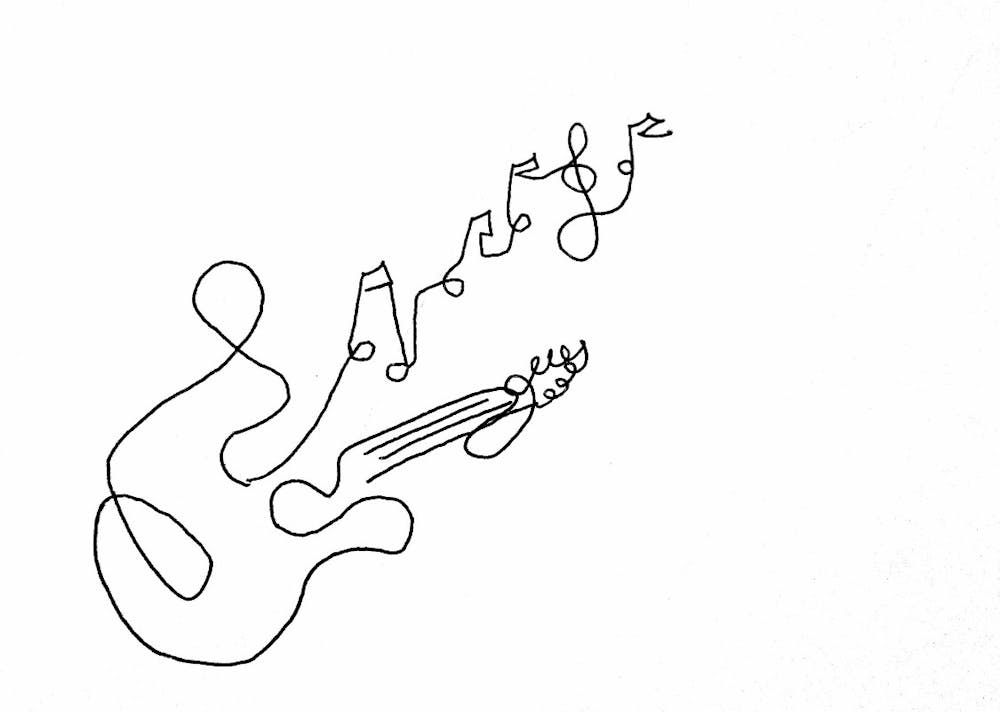Rummaging through our attic in early August, a heat trap coated in a decade’s worth of dust, I picked through abandoned floppy disks, daily planners from the '80s, and two grocery bags stuffed with empty CD cases. Amid the scraps of my parents’ memories, I found the album Blue by Joni Mitchell. The cover was scratched, but the disc was still inside.
My dad was in hospice, which is a gentler way of saying that he was dying. Stage Four pancreatic cancer. He was no longer given IV fluids, only a steadily increasing cocktail of painkillers and sedatives. He wanted death to come fast, he said, but his heart had a mind of its own. It kept up a slow and steady pace for weeks, even as the rest of him quietly gave up.
I carry songs for the people I love. For my dad, it’s the catalog of ballads that we would play together in the evening, mostly drawn from his coming–of–age in the sixties and early seventies and reminiscent of Woodstock.
Clutching the album, I thought, 'Hadn’t he mentioned Joni’s name when I was a kid, and hadn’t I pushed it aside as an out–of–date version of my own?' Still, as a college first–year, her music kept me afloat when I fell in love for the first time. Hearing her effortlessly soulful voice seemed to make my problems weigh less.
“Part of you pours out of me in these lines from time to time.”
Music was how my dad showed me that I was loved. He would sing me “Surfer Girl” by the Beach Boys as a lullaby. Growing up, we had an old Honda Element that got us to school and took us on missions to get pizza. The walls were covered in crayons and spilled soda, and the floor was littered with CDs, beat up from being left outside their cases. On our copy of The Beatles’ The Singles Collection, only half of the songs would play. “Get Back” always got jammed somewhere in the middle.
Last year over Thanksgiving break, me exhausted from being in college, my dad from being a workaholic, we sat side by side on the piano bench playing “The Boxer” by Simon & Garfunkel. I sang the lyrics pulled up on my phone screen as he played the melody.
“I am leaving, I am leaving but the fighter still remains.”
When the song was over, he broke down in tears. I froze. I almost never saw my dad cry and felt unready to bear witness. He told me how those words always made him think of his own father, who ran away from home at 17 to join the Navy. My grandfather was a strong–backed man, but I only knew him in crippling old age, paralyzed by a stroke a few years before I was born.
Last summer, when my dad lay in a hospice bed, too weak to play the guitar, I sang him those shared songs from childhood—anything that I could think of. Our songs from the piano bench. When he was too far gone to hear my voice, I played him Blue.
“I wish I had a river I could skate away on.”
Facing a world without my dad, numbness comes more readily than grief. After his heart gave out, I felt hollow. Eventually, with small steps, I tried testing the waters of sadness. I played whatever song might pierce my skin. I had become a broken record, scratched up in random places. Watching a movie, I sobbed when “Your Song” by Elton John played on the soundtrack. At the gym, I broke down while doing sit–ups when “Oh! Darling” by The Beatles streamed on Spotify. It made me think of summer car rides, where we would belt it out together on road trips to visit my brother.
A few weeks before he collapsed while trying to get into an Uber and went to the ER, I shared a song with him. After the day’s work, we were surrounded by June twilight. We sat outside his office building, a little blue house with a floral couch on the front porch. I passed him a cup of chocolate–vanilla swirl and played “Lucha de Gigantes” by Nacha Pop from my phone’s speakers.
“En un mundo descomunal siento tu fragilidad.”
The sky was orange and purple. I begged the song to speak for me. Finally, when I told him after it played that I felt depressed, unsure of my place in the world, he looked shockingly helpless. Growing up doesn’t make it easier to see your parents vulnerable, I thought. He’s a psychologist, but he has never heard those words from his own daughter before. “I didn’t realize you felt that way,” he said. By the end of July, it was clear that his prognosis was to give up the fight. My brother and I packed up the furniture from his office, six months into a two–year lease.
His final days awake were filled with fumbled attempts at conversation. Knowing that there isn’t much time left with someone you love doesn’t make communicating any easier. Fear clouded my brain, and sickness his. In our last hours together, we mostly stuck to familiar topics. My mom and I helped him get his billing sorted out. My brother talked politics. We joked about the hospital food.
When my own words were gone, I sang for him.

